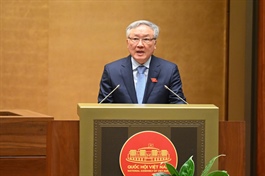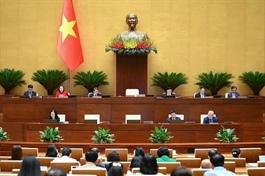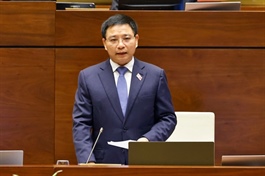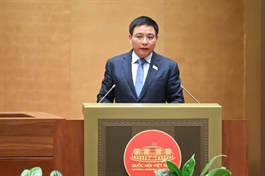Minister of Finance: Supporting business development by both institutions and resources
Minister of Finance: Supporting business development by both institutions and resources
National Assembly deputies discussed solutions to support businesses and encourage the private sector to participate in infrastructure investment on June 18.
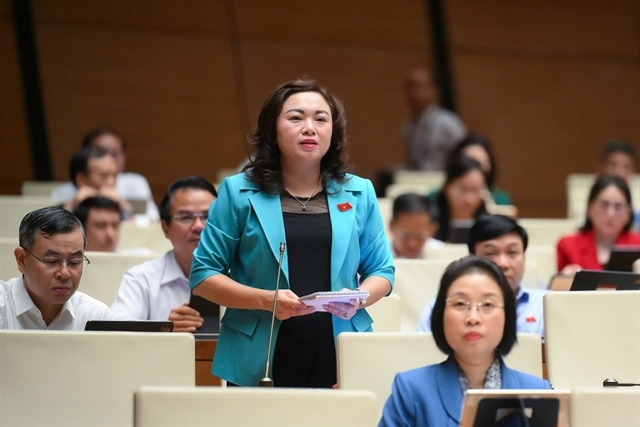
NA deputy Dang Bich Ngoc |
Responding to a question from deputy Dang Bich Ngoc (from Hoa Binh) about solutions to achieve the target of two million enterprises by 2030, Minister of Finance Nguyen Van Thang said that this was an important target for socioeconomic development.
However, this is also a challenge in the context of declining demand, a difficult business environment, weak competitiveness, and the number of enterprises withdrawing from the market.
To realise this goal, the minister proposed three groups of solutions. First, to create a favourable, transparent, and effective business environment, the Ministry of Finance (MoF) will remove barriers to market entry, reform administrative procedures, reduce compliance costs, and review obstacles in investment, land, construction, and planning.
“We must also promote digital transformation in management to create the most favourable conditions for businesses,” he emphasised.
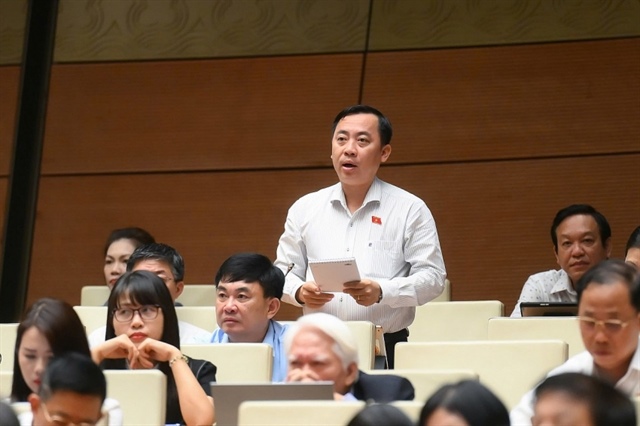
Minister of Finance Nguyen Van Thang |
Second, it is necessary to encourage the process of converting business households into enterprises. There are more than five million business households in operation now, which can easily to grow and contribute to realise the goal of two million enterprises.
The MoF plans to narrow the gap between business households and enterprises in terms of management, finance, and accounting; abolish default tax for business households from 2026; issue practical support policies such as exempting corporate income tax for three years, abolishing business licence tax, and providing free accounting software.
Third, to improve competitiveness, the MoF will prioritise supporting businesses in terms of land, capital, market, technology, digital transformation, and resource development. "We are clearing bottlenecks, helping businesses to increase their resilience and adaptability, thereby reducing the number of businesses withdrawing from the market," Thang said.
Responding to NA deputy Dao Chi Nghia (from Can Tho) about solutions to draw private enterprises into infrastructure construction and public services, Thang said that the MoF has advised the government to amend the provisions of the Law on Public-Private Partnership (PPP) Investment.

NA deputy Dao Chi Nghia |
The three notable new points in the amendment proposal are: cutting down the time for establishing and appraising PPP projects; empowering authorities to establish appraisal councils; and expanding cases of designated bidding for key projects.
“Previously, some projects that were approved by the NA had to redo bidding procedures, sometimes after years,” the minister said.
In addition, the MoF recommended diversifying forms of PPP such as private investment-public operation, and public investment-private management, so that businesses have more options. The state budget will prioritise allocating capital for investment preparation and site clearance to share risks with businesses and balance resources in key PPP projects.
“Previously, businesses involved in PPP projects had to spend 100 per cent of their own money. But now, many projects have state participation of up to 50-60 per cent, so it is easier for businesses to participate,” Thang emphasised.
The MoF is also drafting a decree on PPP in science, technology, innovation, and digital transformation, which is expected to be submitted to the government for promulgation in June.
- 16:53 20/06/2025



